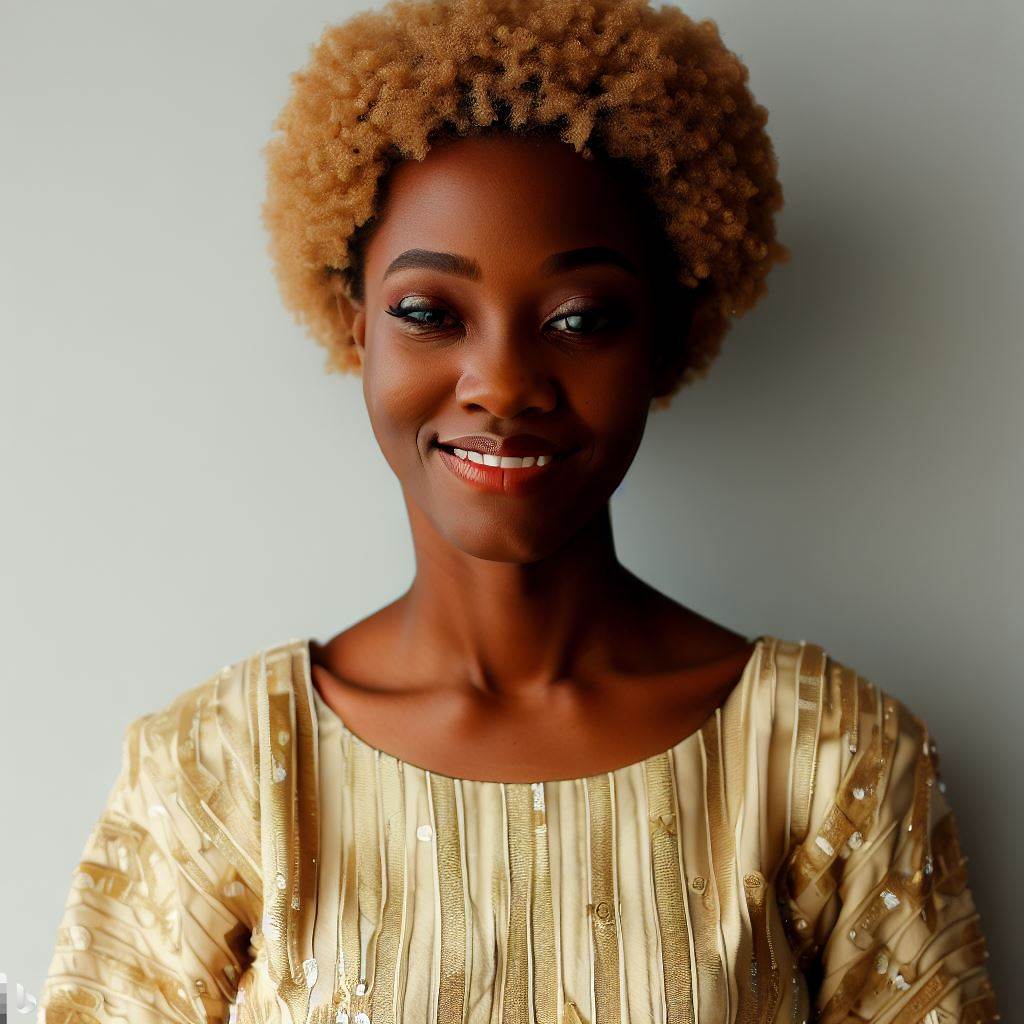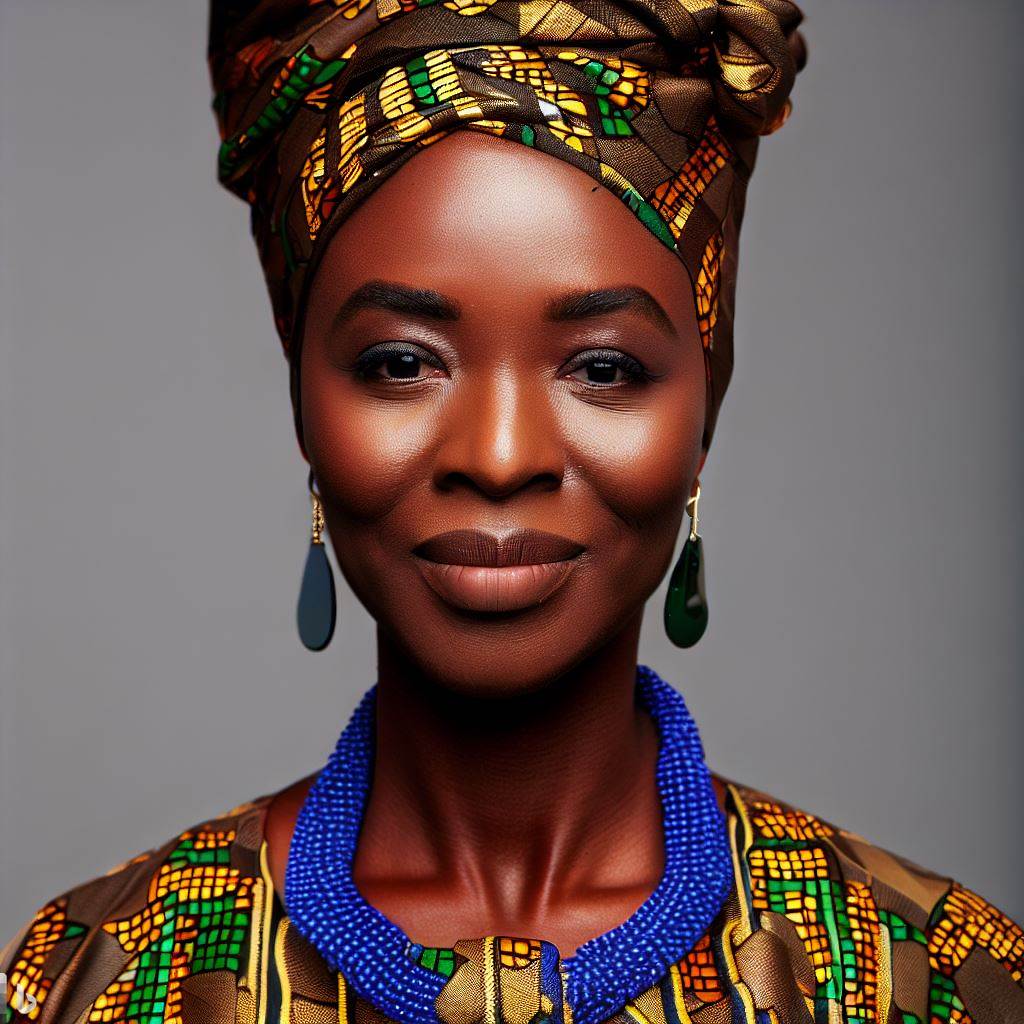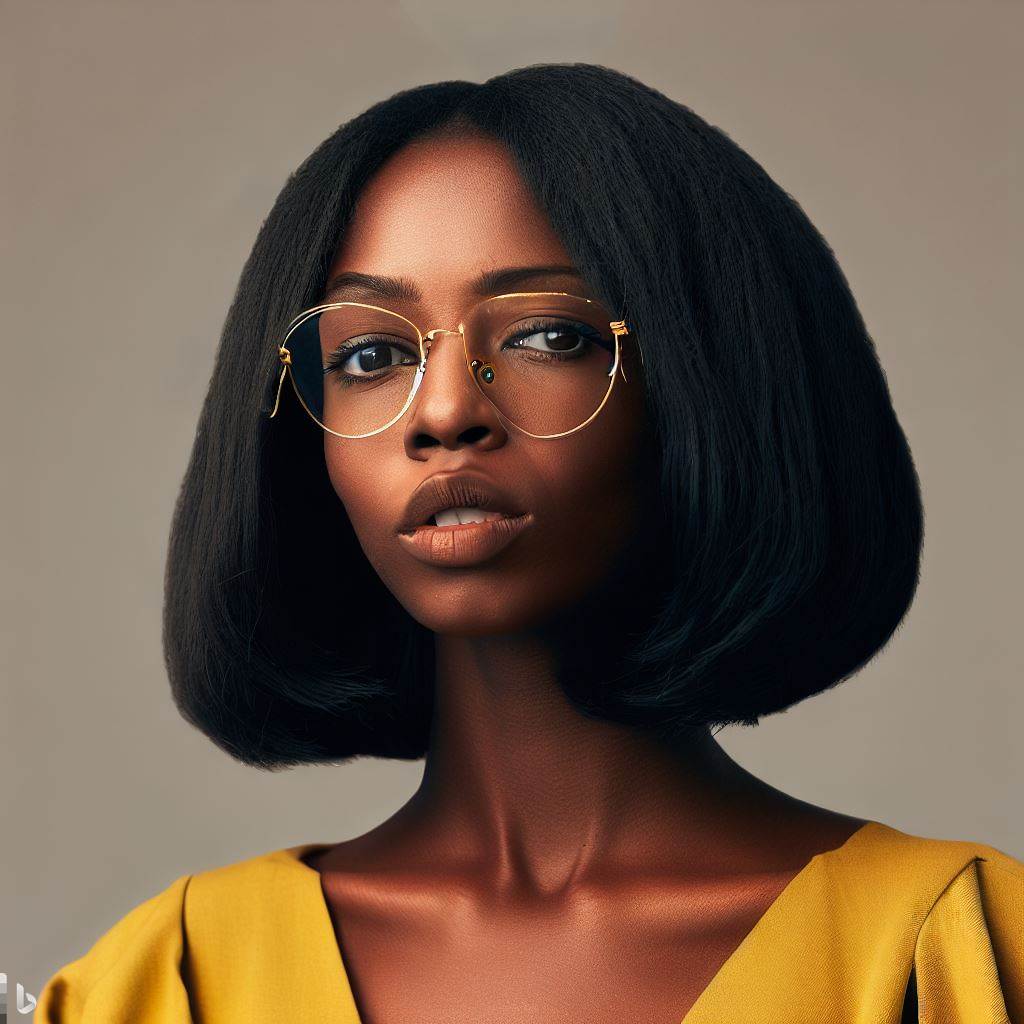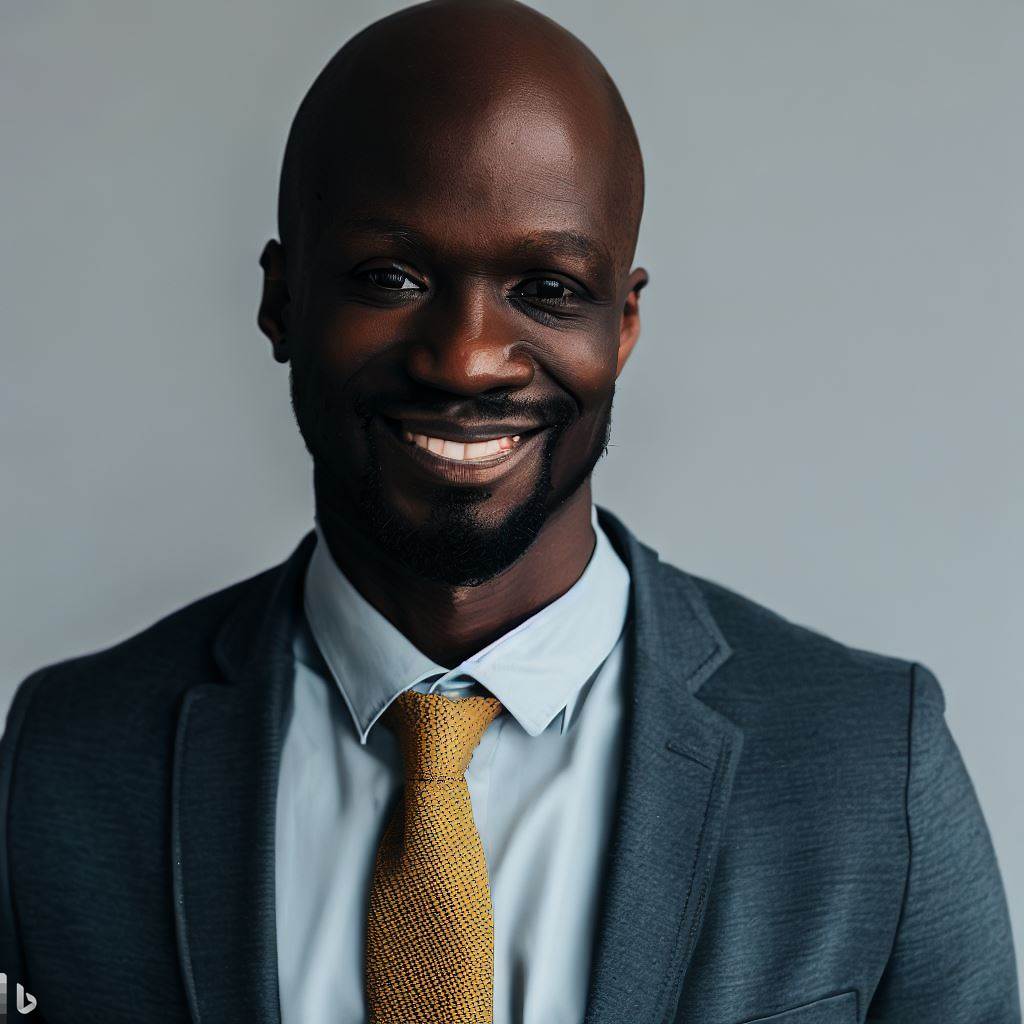Introduction
Costume design plays a vital role in the Nigerian entertainment industry, contributing to the overall visual appeal and storytelling of films, theater productions, and cultural events.
As Nigeria continues to establish itself as a powerhouse in the global entertainment scene, costume designers face several challenges that hinder their creativity and success.
A. Definition and Importance of Costume Design in Nigeria
Costume design is the art of creating and selecting garments, accessories, and overall costumes that enhance the appearance and character development of performers.
In Nigeria, costume design plays a crucial role in showcasing the country’s diverse culture, traditions, and narratives, allowing audiences to connect with the stories being told.
B. Brief Overview of the Challenges Faced by Costume Designers in Nigeria Today
Firstly, limited resources and funding pose significant challenges for costume designers in Nigeria.
With tight budgets, they often struggle to source quality materials, access innovative designs, and hire skilled artisans to bring their visions to life.
Secondly, the lack of appreciation and recognition for costume designers in the industry is a major hurdle.
Despite their significant contributions, costume designers often receive little or no acknowledgment, overshadowed by other aspects of production.
Additionally, the prevalence of counterfeit materials and unethical practices in the market puts costume designers at a disadvantage.
They are constantly challenged by the need to ensure authenticity and originality while dealing with counterfeit fabrics and accessories.
Furthermore, the limited availability of trained professionals and educational institutions specializing in costume design restricts the growth of the industry.
This scarcity of skilled individuals hampers the industry’s progress and limits the opportunities for costume designers to learn and expand their knowledge.
Basically, costume designers in Nigeria face numerous challenges, including limited resources, lack of recognition, counterfeit materials, and a lack of trained professionals.
Overcoming these obstacles requires a concerted effort from industry stakeholders and a commitment to nurturing and empowering costume designers in the country.
Lack of materials and resources
Costume designers in Nigeria face numerous challenges that hinder their ability to create high-quality costumes.
Some of these challenges include:
- Limited availability of fabrics, accessories, and props: Costume designers in Nigeria struggle to find a wide range of fabrics, accessories, and props needed for their designs.
- High costs and importation difficulties: The limited availability of materials often results in higher costs, and importation can be both expensive and time-consuming.
- Impact on the creative process: The lack of materials and resources forces costume designers to be more resourceful and creative in their designs, which can sometimes limit their artistic vision.
A. Limited Availability of Fabrics, Accessories, and Props
- Limited fabric options: Costume designers often have a limited selection of fabrics to choose from, restricting their ability to bring their vision to life.
- Lack of variety in accessories: The availability of accessories is often limited, making it challenging for designers to find the perfect pieces for their costumes.
- Difficulty in finding props: Costume designers often struggle to find appropriate props for their designs, hindering their ability to create authentic and visually appealing costumes.
B. High Costs and Importation Difficulties
- Financial constraints: The high costs of materials and importation make it difficult for costume designers to stay within budget and produce cost-effective designs.
- Delays and logistical issues: Importing materials can be a lengthy process, leading to delays in production and impacting the timely completion of costumes.
- Limited access to cutting-edge fabrics: Costume designers may not have access to the latest fabrics and trends due to importation difficulties and high costs.
C. Impact on the Creative Process and Quality of Costumes
- Compromised creativity: The challenges faced by costume designers in Nigeria can limit their creativity, as they have to work with the limited resources available.
- Reduced quality: The lack of materials and resources can result in lower-quality costumes, as designers may have to settle for inferior substitutes.
- Limited versatility: Costume designers may struggle to create diverse and unique costumes due to the limitations imposed by the lack of materials and resources.
Essentially, costume designers in Nigeria face challenges such as the lack of materials and resources, limited availability of fabrics, accessories, and props, high costs, and importation difficulties.
These challenges impact their creative process and the overall quality of costumes produced.
Despite these hurdles, Nigerian costume designers continue to showcase their talent and creativity, finding innovative ways to overcome these challenges and create stunning costumes.
Read: Modern Trends in Interior Designing: Nigeria’s Perspective
Limited funding and budget constraints
In Nigeria, costume designers face numerous challenges that hinder their creativity and ability to deliver exceptional designs.
This blog section discusses some of the most prevalent difficulties faced by costume designers in Nigeria today:
1. Limited Funding and Budget Constraints
- Securing adequate funding for costume design projects remains a constant challenge.
- Small budgets often restrict the quality and scope of the costumes that can be produced.
- Costume designers struggle to source high-quality materials due to financial limitations.
- The lack of finances often leads to compromises in the final design, impacting the overall production.
2. Importance of Financial Support for Costume Designers
- Financial support plays a pivotal role in developing the costume design industry in Nigeria.
- With sufficient funding, designers can access the necessary resources to create innovative and captivating costumes.
- Investing in costume designers can lead to the growth of the local fashion and entertainment industries.
- Financial support enables designers to attend workshops and training sessions, further enhancing their skills.
3. Lack of Investment in the Industry
- The costume design industry in Nigeria suffers from a lack of investment, both from the government and private sector.
- The absence of financial backing restricts the industry’s growth potential and limits opportunities for costume designers.
- Investment in infrastructure, exhibitions, and marketing can elevate the industry and attract more recognition.
- Without adequate investment, costume designers struggle to compete on a global scale.
4. Difficulty in Acquiring Necessary Equipment and Tools
- Costume designers face challenges in procuring the required equipment and tools for their craft.
- The lack of specialized stores and suppliers makes it difficult to access high-quality materials and tools.
- Importing equipment is often expensive and time-consuming, further hindering productivity.
- Without proper equipment, designers may be unable to achieve their desired results or meet clients’ expectations.
In essence, costume designers in Nigeria face numerous challenges that impede their ability to excel in their craft.
Limited funding and budget constraints, the importance of financial support, the lack of investment in the industry, and difficulty in acquiring necessary equipment and tools are just a few of the obstacles they encounter.
It is crucial for stakeholders, including government bodies and private investors, to recognize the potential of the costume design industry in Nigeria and provide the necessary support and resources to overcome these challenges.
By doing so, they can unlock the full potential of Nigerian costume designers and promote the growth and recognition of the industry.
Read: Tips for Aspiring Photographers: Building a Portfolio in Nigeria
Limited recognition and appreciation
Costume designers in Nigeria face numerous challenges hindering their recognition, appreciation, and industry growth:
- Limited recognition and appreciation: They receive inadequate recognition for their valuable contributions.
- Lack of understanding: Many fail to grasp their pivotal role in character portrayal.
- Minimal acknowledgment: The industry often overlooks their significant contributions.
- Impact on motivation and growth: Undervaluation negatively affects motivation and career progression.
- Financial constraints: Insufficient budgets limit their creative potential.
- Limited resources: Scarce materials restrict creativity.
- Unrealistic deadlines: Tight schedules compromise work quality.
- Lack of collaboration: Poor teamwork affects the final result.
- Limited professional development: Scant training opportunities hinder skill enhancement.
- Insufficient media representation: Media portrayal affects perception and recognition.
Despite these challenges, costume designers continue to showcase their creativity. The industry must recognize their contributions, raise awareness, and provide essential resources and support.
Efforts should focus on educating the public about costume design’s storytelling significance and securing more substantial investments.
Collaboration and teamwork must be encouraged, while professional development opportunities should be expanded.
Addressing these challenges will nurture a thriving creative community that fully appreciates and values costume designers’ vital role in Nigeria’s entertainment industry.
Read: A Guide to Event Photography in Nigeria’s Bustling Cities
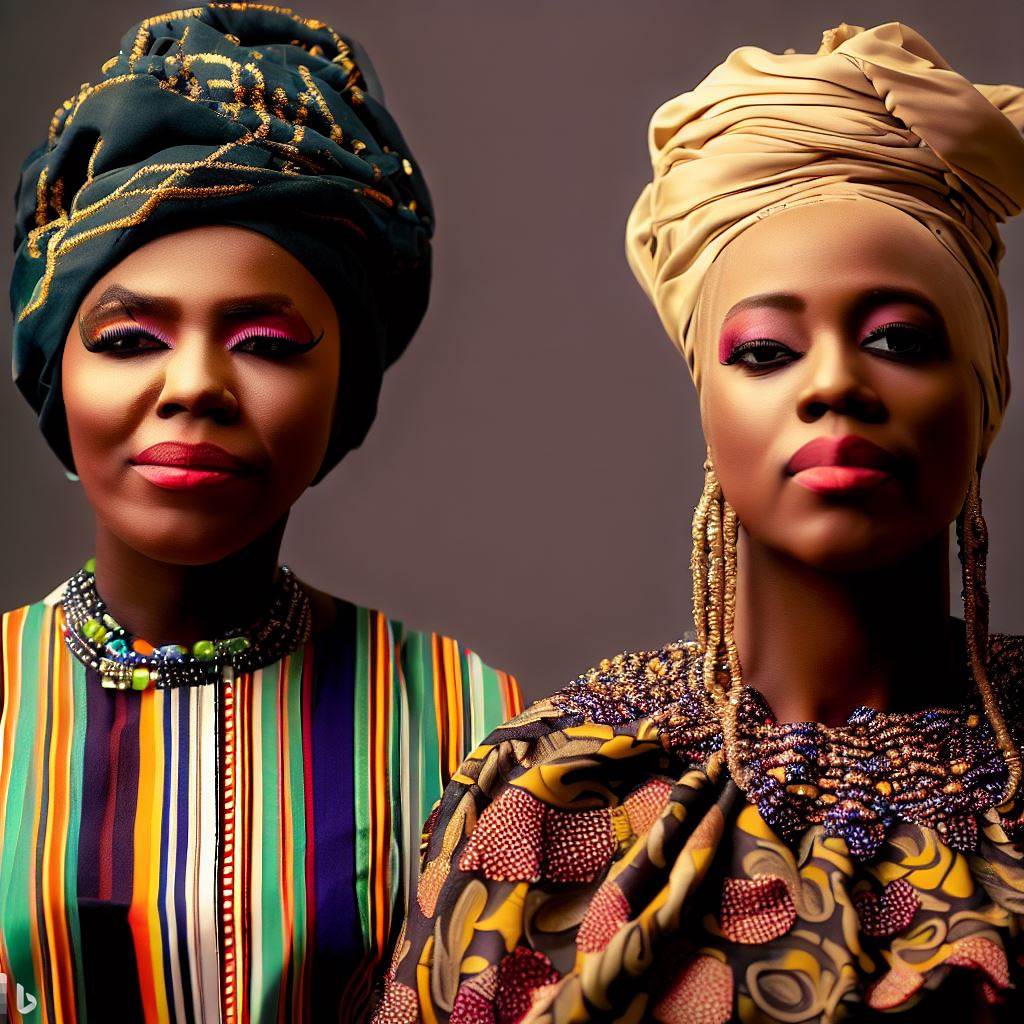
Cultural and Societal Challenges
In Nigeria, costume designers encounter numerous challenges due to cultural and societal factors.
These include:
1. Cultural and Societal Challenges
- High demand for costumes that accurately represent diverse Nigerian ethnic groups.
- Pressure to create costumes that reflect the values and traditions of Nigerian society.
- The need to develop costumes that resonate with different age groups and social classes.
- Difficulties in finding and sourcing authentic materials for costume design.
- Limited availability of specialized training and educational programs for aspiring costume designers.
2. Balancing Tradition and Modernity in Costume Design
- Constant struggle to strike a balance between traditional attire and contemporary fashion trends.
- The challenge to incorporate modern elements into traditional costumes without compromising their cultural significance.
- The need to adapt to changing societal norms while preserving the authenticity of Nigerian costumes.
- Ensuring that costumes remain relevant in a rapidly evolving fashion industry.
3. Cultural Restrictions and Biases
- Religious and cultural restrictions that impact the design and production of costumes.
- Biases against certain types of costumes due to their association with specific ethnic or religious groups.
- The challenge of breaking stereotypes and promoting inclusivity through costume design.
- Navigating traditional gender roles and expectations when designing costumes.
- The need to address societal taboos and sensitivities in costume choices.
4. Difficulties in Adapting Costumes for Diverse Nigerian Ethnic Groups
- The vast diversity of Nigerian ethnic groups requires extensive research and understanding for accurate costume adaptation.
- Adapting costumes for different climates and geographical locations within Nigeria.
- Preserving the uniqueness of each ethnic group’s costumes while ensuring a cohesive overall design.
- Challenges in incorporating traditional craftsmanship techniques into modern costume production processes.
- Understanding and respecting the symbolism and meaning behind each ethnic group’s traditional costumes.
In a nutshell, costume designers in Nigeria face numerous challenges that stem from cultural and societal factors.
Balancing tradition and modernity, navigating cultural restrictions, adapting costumes for diverse ethnic groups, and finding authentic materials are just some of the difficulties they encounter.
Despite these obstacles, Nigerian costume designers continue to showcase their creativity and passion, preserving and promoting the rich cultural heritage of the nation through their craft.
Read: Photographers’ Rights in Nigeria: Laws and Regulations to Know
Technological Advancements and Skills Gap
Nigerian costume designers encounter significant challenges affecting their industry competitiveness:
- Limited access to modern technology and software.
- Insufficient training and education opportunities.
- Continuous skill development needs to stay competitive.
Access to modern technology and software is limited, impeding innovative costume design.
Inadequate training and education options contribute to a skills gap in the industry.
Costume designers often rely on traditional techniques due to a lack of integration with modern technology.
This skills gap hinders their ability to utilize advancements in costume design fully.
To remain competitive, continuous skill development is essential for costume designers in Nigeria.
However, the absence of comprehensive training programs impedes their growth and development.
Enhanced access to technology, software, and increased training opportunities are vital for costume designers to thrive.
Addressing these challenges will foster creativity, elevate profiles internationally, and boost the Nigerian costume design industry.
Collaboration and communication challenges
Costume designers in Nigeria grapple with communication and collaboration challenges:
- Inadequate internal communication within the production team.
- Difficulty interpreting the director’s vision.
- Coordination with other departments for cohesive storytelling.
Effective communication is essential for costume design success. Timely information and clear direction ensure costumes align with the production’s vision.
Understanding the director’s aesthetic is vital. Ambiguity in vision interpretation can lead to misalignment.
Collaboration with other departments, such as set design and lighting, is crucial for cohesive storytelling. Costume designers must ensure all creative elements harmonize seamlessly.
To overcome these challenges, costume designers should prioritize:
- Open and transparent communication within the team.
- Regular meetings and briefings.
- Seeking clarification from the director when needed.
- Active participation in discussions with other departments.
Fostering strong relationships and collaboration among team members is essential for elevating the overall quality of Nigerian productions.
By addressing these challenges, costume designers can contribute significantly to the success and cohesiveness of productions in the Nigerian entertainment industry.
Conclusion
Costume designers in Nigeria face numerous challenges that hinder their growth and the development of the industry.
These challenges include limited resources, lack of recognition, and limited support from the government and stakeholders.
Addressing these challenges is crucial for the growth and development of the Nigerian costume design sector.
By providing better resources, recognizing the talent and hard work of costume designers, and offering more support, the industry can flourish and contribute to the country’s economy.
It is essential for all stakeholders, including the government, fashion industry professionals, and the general public, to actively support and invest in the Nigerian costume design sector.
This can be done by attending and promoting local fashion events, buying Nigerian-made costumes, and providing funding and opportunities for costume designers to showcase their work.
By providing greater support, recognition, and investment, the Nigerian costume design sector can reach its full potential, contributing to the growth of the fashion industry and showcasing Nigeria’s rich cultural heritage to the world.

